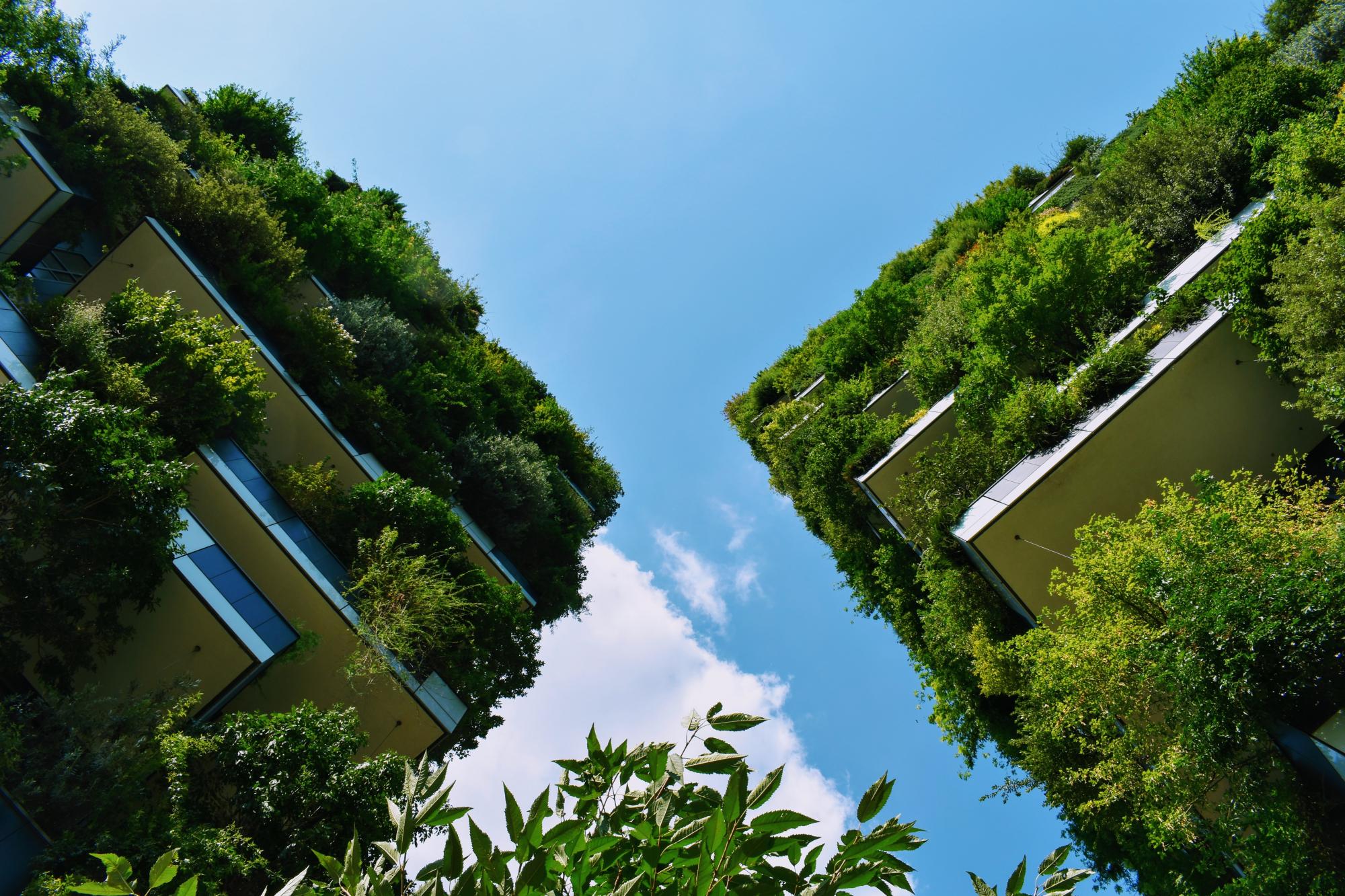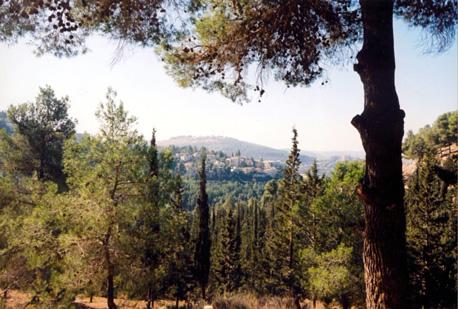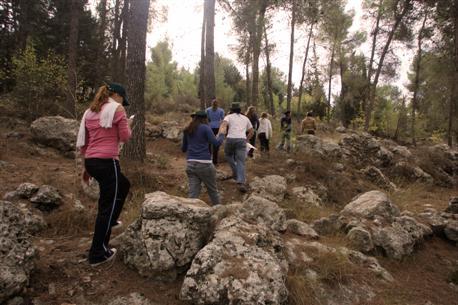The Jerusalem Forest is located southwest of Jerusalem and is the green lung of the residents of Israel's capital. The forest has a variety of trees, flowers and wildlife, remains of ancient farming implements and burial caves (2). The forest was planted in the 1950s in an attempt to increase the green cover and natural biodiversity of the area. However, due to intensive urban development including road constructions and energy grid installation and forest fires the size of the forest has been shrinking once covering 4 700 000 m2 to the current size of 1 250 000m2. In 2016, a non-governmental green organisation initiated the renewing of the Jerusalem Forest with the aim to preserve the forest, halt its decrease, secure its sustainable maintenance while involving the public in the conservation efforts increasing their environmental knowledge about their local habitat and support nature stewardship through the application of a community forest model. (1,2,8)
Overview
Nature-based solution
- Parks and urban forests
- Large urban parks or forests
Key challenges
- Climate action for adaptation, resilience and mitigation (SDG 13)
- Climate change adaptation
- Green space, habitats and biodiversity (SDG 15)
- Habitat and biodiversity restoration
- Habitat and biodiversity conservation
- Green space creation and/or management
- Inclusive and effective governance (SDG 16)
- Inclusive governance
- Effective management
Focus
Project objectives
Implementation activities
Climate-focused activities
Climate change adaptation:
- Implement measures that prevent/manage desertification, soil erosion and landslides
Biodiversity conservation or restoration-focused activities
Biodiversity conservation:
- Protect and enhance urban habitats
- Preserve and strengthen existing habitats and ecosystems
- Reduce negative impacts and avoid the alteration/damage of ecosystem
- Means for conservation governance
- Manage biological resources for conservation and sustainable use
- Raise public awareness
- Public engagement
Biodiversity restoration:
- Rehabilitate and restore damaged or destroyed ecosystems
- Restore species (native, endangered, or unspecified)
- Restore ecological connectivity
- Public engagement
Main beneficiaries
- Citizens or community groups
Governance
Management set-up
- Led by non-government actors
Type of initiating organisation
- Non-government organisation/civil society
Participatory approaches/ community involvement
- Dissemination of information and education
- Joint implementation (e.g. tree planting)
- Co-management/Joint management
- Citizen monitoring and review
Details on the roles of the organisations involved in the project
Project implemented in response to ...
Financing
Total cost
Source(s) of funding
- Unknown
Type of funding
- Unknown
Non-financial contribution
- Provision of labour
- Citizens (e.g. volunteering)
Impacts and Monitoring
Environmental impacts
- Climate change
- Strengthened capacity to address climate hazards/natural disasters
- Green space and habitat
- Increased green space area
- Reduced biodiversity loss
Economic impacts
- Unknown
Socio-cultural impacts
- Social justice and cohesion
- Increased involvement of locals in the management of green spaces
- Unknown
Type of reported impacts
Presence of formal monitoring system
Presence of indicators used in reporting
Presence of monitoring/ evaluation reports
Availability of a web-based monitoring tool
References
2) KKL-JNF. (n.a.). Jerusalem - Nature in Jerusalem. Keren Kayemeth LeIsrael Jewish National Fund. Accessed on October 27, 2021. Source link
3) KKL-JNF. (n.a.). Community Forests. Keren Kayemeth LeIsrael Jewish National Fund. Accessed on October 27, 2021. Source link
4) KKL-JNF. (n.a.). Why Community Forests Are Important?. Keren Kayemeth LeIsrael Jewish National Fund. Accessed on October 27, 2021. Source link
5) KKL-JNF. (n.a.). What are Community Forests? Keren Kayemeth LeIsrael Jewish National Fund. Accessed on October 27, 2021. Source link
6) KKL-JNF. (n.a.). Care and Maintenance? Keren Kayemeth LeIsrael Jewish National Fund. Accessed on October 27, 2021. Source link
7) KKL-JNF. (n.a.) KKL-JNF: For a Sustainable Future for Israel. KKL-JNF: For a Sustainable Future for Israel. Keren Kayemeth LeIsrael Jewish National Fund. Accessed on October 27, 2021. Source link
8) Wikipedia. Jerusalem Forest. Accessed on October 27, 2021. Source link
9) Go Jerusalem. (n.a.). Jerusalem Forest. Go Jerusalem. Accessed on October 27, 2021. Source link
10) Global Forest Watch. (n.a.). Jerusalem. Accessed on October 27, 2021. Source link


